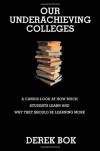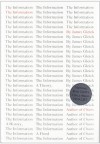Currently reading
McGlue
Knife Fight and Other Struggles
Far from the Tree: Parents, Children, and the Search for Identity
The Good Lord Bird
Ancillary Justice
Our Underachieving Colleges: A Candid Look at How Much Students Learn and Why They Should Be Learning More (New Edition)
Dissident Gardens
Nightmare Movies: Horror on Screen Since the 1960s
The Information: A History, a Theory, a Flood
Complete Novels
 Another 9/11 book, about a kid's personal tragedy.
Another 9/11 book, about a kid's personal tragedy. I'll cop to finding the novel's tearjerking often effective, meaning there are moments quite moving, quite well-defined; Maynard's central adolescent is quite believable. The book doesn't just stack the weepy decks, though, it beats you about the head and neck with the deck--traumas pile up like a who's who of after-school special "problems" (autism, child abuse, teen pregancy). At almost 400 pages, a very exacting and thorough 400 pages, you kind of wish that her plotting was as finely wrought as her rather delicate, subtle attention to emotion.
Now step back: besides the trauma of losing a parent, why did this have to take place on/in relation to 9/11? There is an astonishingly complete absence of world politics; the one stray mention of terrorists is quickly repressed by the protagonist (who didn't want to think of them). To some degree, I buy that; if you're going to accept, as one character put it, that 9/11 "happened to me," you can be ceded some room to be focused on that self's smaller, more intimate world. But nothing? No mention at all of the larger, outside world? (Instead, the protagonist reads Carson McCuller and Anne Frank, and--though this reading gets scant attention--Patrick McCabe's Butcher Boy.) The novel plays up a sense of the ahistorical teenage trauma. (Holocaust & 9/11 disappearing into the internal landscape of the mourning teen, learning to be her self, emotionally, sexually, etc.) That ... well, honestly, that bugs the crap out of me. It seems an easy pitch, particularly since so very, very MANY 9/11 books exploit the grief or trauma of children as neat ways to have our narcissism and eat it, too; these books all too often are simply enactments of an infantilized response to 9/11 endemic in America.
(My goodreads friend Marshall noted that Jess Walter's The Zero is pretty good. It is, and it has a son who grieves his father's death in 9/11. But the catch is the father ain't dead, but all the other people in the kid's life think it's good for him to work through that grief, take it quite seriously.... Walter's book, and Ken Kalfus' excellent Disorder Peculiar to the Country, are rejoinders to the broader cultural narcissism of 9/11-grief.)
So I give this book a couple of stars for doing what it does with some measure of skill, and then complain about the limits of that skill and the even more aggravating limits of that ambition.
And I see some reviewers here call it a YA novel. Interesting; my hardcover isn't marketed nor labelled as such.












